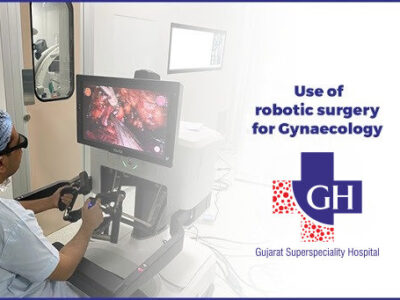A hysterectomy is the surgical removal of the uterus. A woman may have a hysterectomy for reasons like the following –
- Cancer of the uterus
- Uterine prolapse
- Uterine fibroids that cause pain and bleeding
- Abnormal vaginal bleeding
- Chronic Pelvic Pain
- Thickening of Uterus
Types of Hysterectomy
There are three types of hysterectomy
- Subtotal Hysterectomy – This is the least invasive and removes just the uterus
- Total Hysterectomy – This type of hysterectomy removes both the cervix and the uterus
- Radical Hysterectomy – This type of hysterectomy is done to remove all the reproductive parts, including the cervix, the uterus, ovaries, and fallopian tubes.
The Hysterectomy Procedure
Before the surgery, you are asked to shower using a special cleanser which helps in reducing the chances of infection. You will also receive IV antibiotics to reduce the chances of post-operative infection. A urinary catheter is inserted to make sure that the bladder is empty.
The surgery is performed under general anesthesia. The technique for performing hysterectomy varies depending on the reason for the surgery. In case of an abdominal hysterectomy, requires the longest hospital stay and recovery time. A vaginal hysterectomy is less invasive and offers quicker recovery time.
Immediately after the hysterectomy, it is normal to experience some pain. Our surgeon will prescribe the required medication to reduce your pain. It is also normal to experience a vaginal discharge after the procedure, for which the patient needs to wear a pad for several weeks.
Risks of Hysterectomy
Most women who undergo this surgery have no serious complications. However, hysterectomy has some risks too. The complications include –
- Vaginal Prolapse (part of the vagina comes out of the body)
- Urinary incontinence
- Vaginal fistula formation (an abnormal connection that forms between the vagina and bladder)
- Chronic Pian
Other risks from hysterectomy include wound infections, blood clots, hemorrhage and injury to surrounding organs which are uncommon.
Recovery Period
Complete recovery from a hysterectomy takes 2 to 6 weeks based on the type of procedure. To reduce the risk of blood clots, it is advisable to start walking as soon as possible after the surgery. One has to avoid heavy lifting, strenuous activity and sexual intercourse for a while after the procedure.
After a hysterectomy, if the ovaries are also removed, a woman will enter menopause. If the ovaries are not removed, the woman may enter menopause at an earlier age.
Hysterectomy in Vadodara
At Gujarat Superspeciality Hospital we have state-of-art technology and procedures available that make hysterectomy much easier and the recovery period is shorter. If you are in search of a good hospital for hysterectomy in Vadodara, then we are here to help and assist you!

